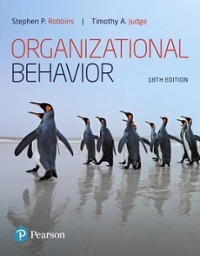Whats your cell phone number? Good, Ill call you about the meeting. If youre like many people
Question:
“What’s your cell phone number? Good, I’ll call you about the meeting.” If you’re like many people in the world who have used a smartphone for years, or one of the 3 billion people who bought one recently, chances are you’ve used it for work. In fact, your employer may have even invited— or asked—you to use your smartphone, tablet, or laptop in your job. Such is the bring-your-own-device (BYOD) trend, which started out of friendly convenience but now carries major ethical issues. For instance:
• Did you know your employer can wipe your personal devices clean? Remotely? With no warning? It happens, and not just at the 21 percent of organizations that erase devices when employees are terminated. Any time an organization has a privacy concern, it may wipe all devices clean to prevent a further breach of its cyberdefenses. Health care consultant Michael Irvin lost his personal e-mail accounts, apps, music, contacts, and photos suddenly one day, leaving his multiuse iPhone “like it came straight from the factory.” Another individual lost pictures of a relative who had died.
• Is your device part of your employment contract, either explicitly or by understanding? If so, who pays for the device? Well, you did, and you continue to pay for the service. If the device breaks, who pays for the replacement device? Can you lose your job if you can’t afford the device and service?
• Can you use your device for all work-related communications? The cloud has brought opportunities for people to send classified work information anywhere, anytime. Organizations are concerned about what social media, collaboration, and file-sharing applications are in use, which is fair, but some policies can limit how you use your own device.
• Once you use your personal device for work, where are the boundaries between work and home life? Research indicates that intensive smartphone users, for instance, need to disengage in their off-hours to prevent work–home stress and burnout. Yet not everyone can do this, even if they are allowed to; research indicates that a significant proportion of smartphone users felt pressured to access their devices around the clock, whether or not that pressure was warranted.
Questions
1. Do you use your smartphone or other personal devices for work? If so, do you think this adds to your stress level or helps you by providing convenience?
2. Cocalis likes the two-phone lifestyle and says that his boss has his personal phone number only for emergencies. But assistant talent manager Chloe Ifshin reports that it doesn’t work so well in practice. “I have friends who are clients and clients who are friends,” she says, so work contacts end up on her personal phone and friends call her work phone. How does this consideration affect your thinking about using your own device for both work and leisure?
3. Organizations are taking steps to protect themselves from what employees might be doing on their personal devices through allowing only approved computer programs and stricter policies, but no federal regulations protect employees from these restrictions. What ethical initiatives might organizations adopt to make this situation fair for everyone?
Step by Step Answer:

Organizational Behavior
ISBN: 9780134729329
18th Edition
Authors: Stephen RobbinsTimothy JudgeTimothy Judge, Timothy Judge





